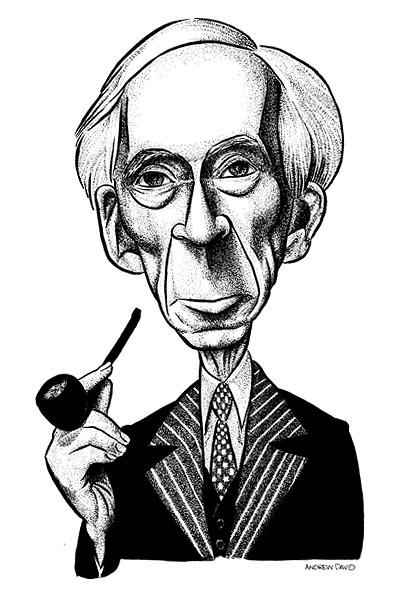
The misfortunes of human beings may be divided into two classes: First, those inflicted by the non-human environment and, second, those inflicted by other people. As mankind have progressed in knowledge and technique, the second class has become a continually increasing percentage of the total. In old times, famine, for example, was due to natural causes, and although people did their best to combat it, large numbers of them died of starvation. At the present moment large parts of the world are faced with the threat of famine, but although natural causes have contributed to the situation, the principal causes are human. For six years the civilized nations of the world devoted all their best energies to killing each other, and they find it difficult suddenly to switch over to keeping each other alive. Having destroyed harvests, dismantled agricultural machinery, and disorganized shipping, they find it no easy matter to relieve the shortage of crops in one place by means of a superabundance in another, as would easily be done if the economic system were in normal working order. As this illustration shows, it is now man that is man's worst enemy. Nature, it is true, still sees to it that we are mortal, but with the progress in medicine it will become more and more common for people to live until they have had their fill of life. We are supposed to wish to live for ever and to look forward to the unending joys of heaven, of which, by miracle, the monotony will never grow stale. But in fact, if you question any candid person who is no longer young, he is very likely to tell you that, having tasted life in this world, he has no wish to begin again as a 'new boy' in another. For the future, therefore, it may be taken that much the most important evils that mankind have to consider are those which they inflict upon each other through stupidity or malevolence or both.
I think that the evils that men inflict on each other, and by resection upon themselves, have their main source in evil passions rather than in ideas or beliefs. But ideas and principles that do harm are, as a rule, though not always, cloaks for evil passions. In Lisbon when heretics were publicly burnt, it sometimes happened that one of them, by a particularly edifying recantation, would be granted the boon of being strangled before being put into the flames. This would make the spectators so furious that the authorities had great difficulty in preventing them from lynching the penitent and burning him on their own account. The spectacle of the writhing torments of the victims was, in fact, one of the principal pleasures to which the populace looked forward to enliven a somewhat drab existence. I cannot doubt that this pleasure greatly contributed to the general belief that the burning of heretics was a righteous act. The same sort of thing applies to war. People who are vigorous and brutal often find war enjoyable, provided that it is a victorious war and that there is not too much interference with rape and plunder. This is a great help in persuading people that wars are righteous. Dr Arnold, the hero of Tom Brown's Schooldays, and the admired reformer of Public Schools, came across some cranks who thought it a mistake to flog boys. Anyone reading his outburst of furious indignation against this opinion will be forced to the conclusion that he enjoyed inflicting floggings, and did not wish to be deprived of this pleasure.
It would be easy to multiply instances in support of the thesis that opinions which justify cruelty are inspired by cruel impulses. When we pass in review the opinions of former times which are now recognized as absurd, it will be found that nine times out of ten they were such as to justify the infliction of suffering. Take, for instance, medical practice. When anaesthetics were invented they were thought to be wicked as being an attempt to thwart God's will. Insanity was thought to be due to diabolic possession, and it was believed that demons inhabiting a madman could be driven out by inflicting pain upon him, and so making them uncomfortable. In pursuit of this opinion, lunatics were treated for years on end with systematic and conscientious brutality. I cannot think of any instance of an erroneous medical treatment that was agreeable rather than disagreeable to the patient. Or again, take moral education. Consider how much brutality has been justified by the rhyme:
A dog, a wife, and a walnut tree,
The more you beat them the better they be.
I have no experience of the moral effect of flagellation on walnut trees, but no civilized person would now justify the rhyme as regards wives. The reformative effect of punishment is a belief that dies hard, chiefly I think, because it is so satisfying to our sadistic impulses.
But although passions have had more to do than beliefs with what is amiss in human life, yet beliefs, especially where they are ancient and systematic and embodied in organizations, have a great power of delaying desirable changes of opinion and of influencing in the wrong direction people who otherwise would have no strong feelings either way. Since my subject is 'Ideas that have Harmed Mankind,' it is especially harmful systems of beliefs that I shall consider.
TO BE CONTINUED ...